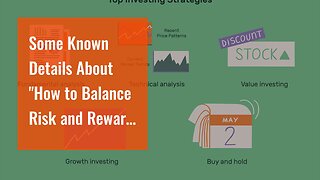Your Bank Deposits Are Safe For Now Warren Buffett!
Bank deposits refer to the money you place in a bank account, such as savings accounts or certificates of deposit (CDs). They are considered one of the safest forms of investments because they are typically insured by government agencies in many countries. In the United States, for example, the Federal Deposit Insurance Corporation (FDIC) insures deposits up to a certain limit per account holder per institution.
The advantage of bank deposits is that they offer stability and liquidity, which means you can access your money easily when needed. However, the downside is that the returns on bank deposits are usually relatively low compared to other investment options like stocks, bonds, or real estate Diversification: Diversifying your investments across different asset classes, such as stocks, bonds, real estate, and even cash, can help spread risk and reduce exposure to any one particular asset.
Long-term Investing: Historically, long-term investing in the stock market has provided higher returns than most other asset classes. Staying invested for the long run can help ride out market volatility and take advantage of compounding growth.
Emergency Fund: Building an emergency fund in a bank savings account can provide financial security during unexpected events or emergencies.
Asset Allocation: Determine an appropriate asset allocation based on your risk tolerance, time horizon, and financial goals. Asset allocation involves deciding how much of your portfolio to allocate to different types of investments.
Avoiding High-Risk Investments: While high-risk investments may promise high returns, they also carry a higher chance of significant losses. Consider your risk tolerance and invest according to your comfort level.
Seek Professional Advice: If you're unsure about managing your investments, seeking advice from a licensed financial advisor can be beneficial. A professional can help you create a tailored investment plan and provide ongoing guidance.
Educate Yourself: Take the time to learn about different investment options and financial concepts. The more informed you are, the better equipped you'll be to make sound financial decisions.
Remember, everyone's financial situation is unique, and there is no one-size-fits-all approach to investing. It's essential to assess your own circumstances, risk tolerance, and financial goals before making any investment decisions. https://wp.me/peBIi1-21 Goals and Risk Tolerance: Clearly define your investment goals and assess your risk tolerance. Different investments carry different levels of risk, and it's essential to choose investments that align with your comfort level and financial objectives. Bonds: Bonds are debt instruments issued by governments or corporations. They typically offer lower returns than stocks but are considered more stable and less risky.
Mutual Funds and ETFs: These are investment vehicles that pool money from multiple investors to invest in a diversified portfolio of assets. They offer a convenient way to achieve diversification without directly buying individual securities.
Time Horizon: Consider your investment time horizon, which is the length of time you plan to hold your investments. Longer time horizons may allow for more aggressive investment strategies, while shorter time horizons may warrant a more conservative approach.
Diversification: Diversifying your investment portfolio is crucial to managing risk. By spreading your investments across different asset classes and industries, you can reduce the impact of a single investment's performance on your overall portfolio.
Asset Classes: Common asset classes for individual investors include stocks, bonds, real estate, and cash equivalents. Each asset class has its own risk and return characteristics, so understanding them is important for creating a well-balanced portfolio.
Stocks: Investing in stocks means buying shares of ownership in a company. Stocks can provide the potential for high returns over the long term but are also subject to higher volatility compared to other assets https://wp.me/peBIi1-21
-
 0:38
0:38
Wealthion
1 year agoJerome Powell is Guaranteeing Bank Depositors?
148 -
 15:38
15:38
The Morgan Report
6 months ago $0.35 earnedSafe Dealers, Safe Banks... Where Are They?
651 -
 25:02
25:02
Midas Gold Group
3 months agoIs Your Bank Going to Survive? | The Gold Standard 2408
941 -
 22:18
22:18
Mark Reese // Credit & Finance
3 months ago#1 BEST Bank Accounts 2024 (High Yield Savings and Checking)
61 -
 0:47
0:47
quantifiedstrategies
3 months ago $0.02 earnedWarren Buffett's (90/10) Portfolio
10 -
 1:53
1:53
Artiinteldaily
1 year agoWarren Buffett's Advice for Investing in a New Bull Market
20 -
 0:28
0:28
Wealthion
1 year ago $0.04 earnedHow To Protect Your Money From A Bank Collapse
151 -
 1:38
1:38
MaiquelPP
8 months agoUnlocking the Secrets of Money Market Deposit Accounts
5 -
 7:04
7:04
Website with WordPress
1 year agoSome Known Details About "How to Balance Risk and Reward in Your Retirement Savings Investments...
11 -
 7:19
7:19
Banking Basic
5 months agoThe Best Bank Accounts: Some of the Highest Rates Out There
11